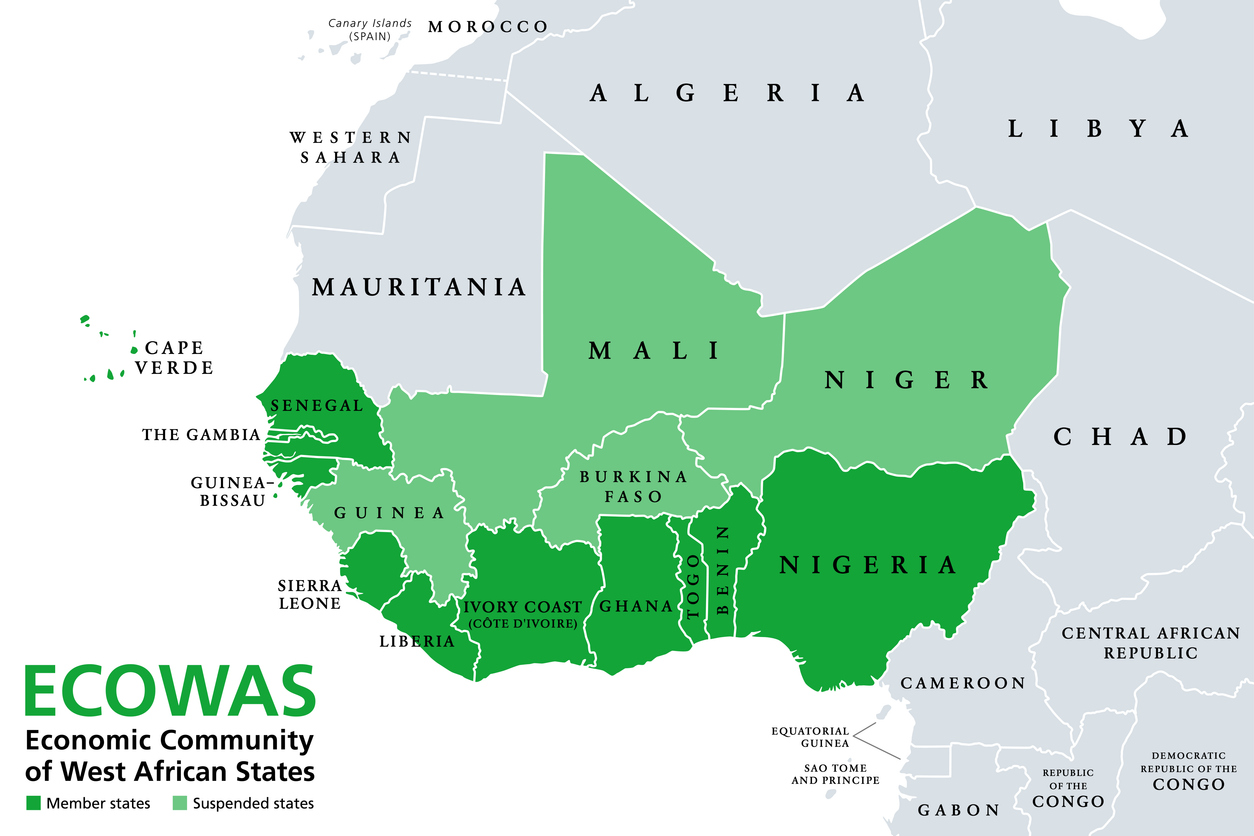Understanding ECOWAS: Driving Regional Integration and Economic Growth in West Africa
The Economic Community of West African States, commonly known as ECOWAS, is a regional political and economic union of fifteen West African countries. Established with the goal of fostering economic integration, political stability, and social development, ECOWAS plays a crucial role in shaping the future of West Africa. Through its initiatives in trade, security, and governance, ECOWAS aims to create a unified and prosperous region that benefits all member states.
At Wigmore Trading, we understand the significance of ECOWAS in facilitating regional trade and economic cooperation. In this article, we’ll explore the history, objectives, and impact of ECOWAS on the West African region, and how it supports businesses in navigating the complexities of regional integration.
What is ECOWAS?
ECOWAS was founded on May 28, 1975, with the signing of the Treaty of Lagos by 15 West African countries. The primary goal of ECOWAS is to promote economic integration and cooperation among its member states to achieve collective self-sufficiency and sustainable development. The organization also focuses on political stability, peacekeeping, and social progress in the region.
Member States of ECOWAS:
- Benin
- Burkina Faso
- Cape Verde
- Côte d’Ivoire
- Gambia
- Ghana
- Guinea
- Guinea-Bissau
- Liberia
- Mali
- Niger
- Nigeria
- Senegal
- Sierra Leone
- Togo
Objectives of ECOWAS
ECOWAS was established with a range of objectives aimed at fostering regional development and cooperation. Some of the key objectives include:
1. Economic Integration
ECOWAS seeks to create a single regional market for goods, services, and capital. By promoting free trade among member states, ECOWAS aims to boost intra-regional trade, reduce trade barriers, and enhance the economic competitiveness of the region.
2. Political Stability and Peacekeeping
One of ECOWAS’s primary objectives is to maintain peace and security in the region. The organization has been involved in various peacekeeping missions and conflict resolution efforts to address political instability and civil unrest in member states.
3. Infrastructure Development
ECOWAS is committed to improving regional infrastructure, including transportation, energy, and communication networks. Enhanced infrastructure is vital for facilitating trade, improving connectivity, and supporting economic growth in the region.
4. Social Development
ECOWAS promotes social development initiatives aimed at improving education, healthcare, and social welfare across member states. The organization also works to protect human rights and promote gender equality in the region.
5. Harmonization of Policies
ECOWAS works to harmonize economic, trade, and investment policies among member states. This harmonization is essential for creating a conducive environment for cross-border trade and investment, as well as for fostering regional economic integration.
Impact of ECOWAS on West Africa
ECOWAS has had a significant impact on the economic, political, and social landscape of West Africa. Through its initiatives and programs, ECOWAS has contributed to the region’s development in several key areas:
1. Trade and Economic Growth
ECOWAS has played a pivotal role in promoting intra-regional trade and economic cooperation among its member states. The establishment of the ECOWAS Trade Liberalization Scheme (ETLS) has facilitated the free movement of goods within the region, reducing tariffs and trade barriers. This has led to increased trade volumes, economic growth, and greater economic integration in West Africa.
2. Peace and Security
ECOWAS has been instrumental in maintaining peace and stability in the region. The organization has deployed peacekeeping forces and mediation efforts in countries experiencing conflict, such as Liberia, Sierra Leone, and Côte d’Ivoire. ECOWAS’s commitment to peace and security has helped prevent the escalation of conflicts and contributed to regional stability.
3. Infrastructure Development
Through various initiatives, ECOWAS has supported the development of critical infrastructure in the region. Projects such as the West African Power Pool (WAPP) and the ECOWAS Railway Master Plan aim to improve energy supply and transportation networks, which are essential for economic growth and regional integration.
4. Social Progress
ECOWAS has made significant strides in promoting social development across West Africa. The organization’s efforts in education, healthcare, and gender equality have contributed to improving the quality of life for millions of people in the region. ECOWAS has also launched initiatives to address public health challenges, such as the fight against HIV/AIDS and the response to the Ebola outbreak.
5. Harmonized Policies
ECOWAS has successfully worked to harmonize policies across member states, making it easier for businesses to operate in multiple countries within the region. This harmonization has created a more predictable and stable environment for trade and investment, encouraging economic activity and regional cooperation.
How ECOWAS Supports Businesses in West Africa
For businesses operating in West Africa, ECOWAS provides a framework that facilitates cross-border trade, investment, and cooperation. The organization’s initiatives have created a more integrated and accessible market, offering several advantages for businesses:
1. Access to a Large Market
By promoting free trade and reducing trade barriers, ECOWAS provides businesses with access to a large and diverse market of over 350 million people. This access allows companies to expand their operations, reach new customers, and increase their market share within the region.
2. Reduced Trade Barriers
The ECOWAS Trade Liberalization Scheme (ETLS) simplifies the process of exporting goods within the region by reducing tariffs and removing non-tariff barriers. This makes it easier and more cost-effective for businesses to engage in cross-border trade.
3. Harmonized Regulations
ECOWAS’s efforts to harmonize trade and investment regulations create a more predictable business environment. This consistency in regulations across member states reduces the complexity and risk of doing business in multiple countries, encouraging investment and economic activity.
4. Improved Infrastructure
ECOWAS’s focus on infrastructure development benefits businesses by improving transportation, energy supply, and communication networks. Better infrastructure enhances connectivity, reduces costs, and supports the efficient movement of goods and services across the region.
Conclusion
ECOWAS plays a crucial role in shaping the future of West Africa by promoting economic integration, political stability, and social development across its member states. Through its initiatives and programs, ECOWAS has made significant strides in creating a more unified and prosperous region.
At Wigmore Trading, we recognize the importance of ECOWAS in facilitating regional trade and economic cooperation. Whether you’re looking to expand your business within West Africa or navigate the complexities of cross-border trade, we have the expertise and resources to support your success in the ECOWAS region.
Get in touch:
Interested in exploring business opportunities within the ECOWAS region? Get in touch with Wigmore Trading today to learn more about how we can support your operations and help you navigate the West African market. Contact us via our website, email, or phone, and let’s work together to achieve your business goals.








Comments are closed.